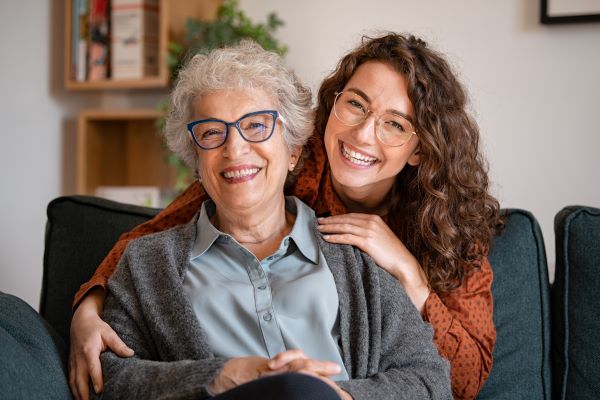Solo agers are seniors who, either by choice or circumstance, are aging without the traditional…

Do Guardians in New York Get Paid?
** This article has been revised from its original version which was published on June 5, 2014.
Guardianship is a legal arrangement. A court appoints a qualified individual as the guardian who will have the legal right to make decisions for another person (ward) who is not able to make decisions for themselves. A ward may be a child, an incapacitated adult, or someone with a developmental disability.
Being appointed as a legal guardian in New York comes with a lot of responsibilities, and it often requires a lot of time, effort, and commitment. That’s why people ask if they can get paid for legal guardianship.
Duties and Obligations of Guardians in New York
There are different kinds of New York guardianships to make decisions for the person or their property. Guardians for the person may make decisions regarding living arrangements or health care. Guardians for property (formerly known as conservators) may make decisions on matters of money, property, or investments. An appointed guardian must follow through on a fiduciary duty of loyalty to their ward, and if a breach of duty is determined by a court, such as failing to preserve the ward’s assets, they should not expect to get paid and may be subject to sanctions depending upon the degree of breach of duty.
How Much Can a Guardian Get Paid?
To determine what a guardian can be paid, courts may base reasonable compensation on the statutory commission provisions for Trustees, Executors, and Administrators in the New York Surrogate’s Court Procedure Act to calculate payment. The court also considers the guardian’s appointed responsibilities, the laws of the state, whether the ward has money to pay, their relationship to the ward, and the complexity of the guardianship.
Guardianship Payment for Medicaid Recipients
In 2014, a U.S. district court nearly eliminated some guardians’ ability to be fairly compensated. Many diligent and qualified guardians statutorily entitled to fair and reasonable compensation found themselves faced with the decision to either take on the difficult and time-consuming position of guardian for free or turn down the position altogether. The decision affected incapacitated persons on Medicaid in need of a qualified guardian. As New York elder law attorneys, we found this case upsetting.
In Williams v. Shah (E.D.N.Y., No. 12–CV–3953), a group of Medicaid recipients with guardians filed a class action against the state, arguing that guardianship-related fees and expenses should be deducted when calculating Net Available Monthly Income (NAMI). Otherwise, they would be potentially liable for nursing home charges. They also argued the guardians are legally appointed by a state court and entitled to reasonable compensation.
However, the U.S. District Court for the Eastern District of New York ruled that the recipients who brought the suit lacked standing, a fundamental constitutional requirement that the court stated “prevents courts from unnecessarily reaching legal issues…” yet the court stated that even if the recipients had standing, the guardianship expenses are not a part of the personal needs allowance. In other words, Medicaid recipients aren’t entitled to have guardianship fees deducted from their income to determine the monthly funds available to pay nursing home costs.
Medicaid recipients in New York who live in a nursing home with income that exceeds the Medicaid income threshold are required to contribute part of their income to pay for their care. To determine the amount, the state deducts certain expenses, including a personal needs allowance, from the recipient’s income to come up with their net available monthly income (NAMI). Guardianship fees can’t be part of the calculation, which may make guardianship needs unaffordable. Our New York elder law attorneys believe an incapacitated person should not have to lose the much-needed services of a qualified guardian to be eligible for Medicaid.
Should You Become a Paid or Unpaid Guardian?
Being a legal guardian is a demanding role and places you under the court’s scrutiny for your actions when it involves your ward. However, the courts appreciate good and qualified individuals who want to be guardians despite all the work that may need to be done. Often, there won’t be complete compensation for your efforts and time expended. However, if the guardianship estate allows for it, the court will award compensation to the guardian based on what is available currently and what will remain for the future use of your ward. Remember, as a guardian, you are often helping someone who is deemed no longer able to help themselves and needs your assistance and protection. This may be a loved one or stranger in need who is unable to compensate you. The answer depends on all guardian’s personal guiding principles and beliefs regarding the cost of helping someone personally or professionally.
Consult with and retain experienced estate planning and elder law attorneys familiar with New York guardianship and Medicaid laws. The knowledgeable and compassionate team at Russo Law Group, P.C., provides professional guardianship services and advises clients on long-term care expenses, asset transfers, gifting, penalty periods, pooled trusts, and more. Take advantage of our comprehensive website as well as our free seminars and webinars to learn more about how Russo Law Group, P.C. provides peace of mind. Please contact our law firm to speak with one of our experienced elder law and estate planning attorneys today at 1 (800) 680-1717.




This Post Has 0 Comments